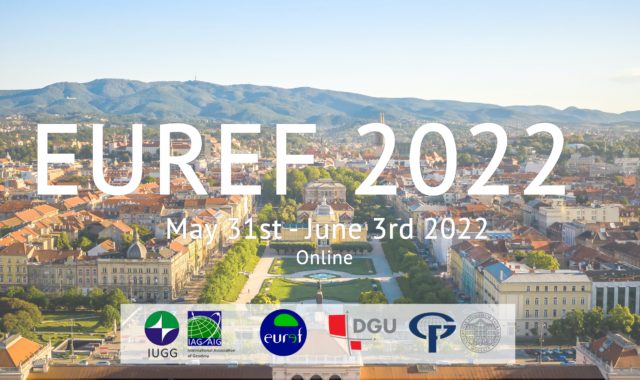This post is also available in:
 Hrvatski (Croatian)
Hrvatski (Croatian)
More information about the programme
BASIC INFORMATION
Why attend the Faculty of Geodesy at the University of Zagreb?
If you want to learn what sizes geodesists measure to determine the size and shape of the Earth or its parts, or how to measure distances and heights, how to produce maps, how to accurately stake out roads, tunnels, bridges, and other objects in 3D space, how GPS (Global Positioning System) works and what is it for, how cadastre and land registers are founded and maintained, your first step is to enroll in an undergraduate university study of geodesy and geoinformatics.
The duration of undergraduate (bachelor) university study is three years, graduate (master) study two years, postgraduate doctoral is three years, and postgraduate specialist study one year.
The Faculty of Geodesy is a higher education institution in the scientific area of technical sciences, the field of geodesy. Undergraduate, graduate, postgraduate doctoral, and postgraduate specialist studies in geodesy and geoinformatics are organized at the Faculty of Geodesy.
Upon completion of the undergraduate university study of geodesy and geoinformatics, one acquires 180 ECTS credits and the professional title of university bachelor (baccalaureus) engineer of geodesy and geoinformatics (BSc. Geod. and Geoinf.).
The program prepares candidates for participation in cadastral and land registration procedures, for production and maintenance of topographic, cartographic, and land geoinformation systems, for measuring the sizes needed to define the size, position, shape, contours, and changes of any part of the Earth and land, and for solving practical land surveying tasks.
The study of geodesy and geoinformatics belongs to technical studies and as such requires a tendency for/and a good knowledge of mathematics, physics, and informatics. For highly educated engineers of technical professions, especially for geodesists and geoinformaticians, the demand is high, both in Croatia and abroad. The Faculty of Geodesy offers students a quality and well-organized study. Fieldwork is an integral part of geodetic work and for all those who want to do their job outside the office, in the fresh air, always on the move, but also with great responsibility, this study is a great choice. Everything in the space is located or the position is defined by a geodetic expert. Geodesy and especially geoinformatics are interdisciplinary professions, and the opportunities for work and cooperation with other professions are great.
What after completing undergraduate studies?
After completing the undergraduate study, most bachelors continue the graduate study of geodesy and geoinformatics. One smaller part of the bachelors is employed in the profession, and the other smaller part of the bachelors decides to enroll in another graduate study, most often in the field of technical, natural, or biotechnical sciences.
STUDY PROGRAMS
An undergraduate university study of geodesy and geoinformatics lasting 3 years, which provides 180 ECTS credits and the professional title of bachelor (baccalaureus) engineer in geodesy and geoinformatics (univ. Bacc. Ing. Geod. et Geoinf.) is performed at the Faculty of Geodesy, at the University of Zagreb from the academic year 2005/2006. In the academic year 2014/2015 amendments in the amount of up to 20% were recorded. From the academic year 2015/2016 the program is carried out following the above amendments, which mainly relate to many elective courses.
Requirements and results (learning outcomes) of the study program.
During six semesters, students acquire basic knowledge and skills in the field of study program such as the establishment of geodetic networks, geodetic surveys, processing and visualization of data thus obtained, land information management, and geoinformation systems management. Other knowledge and skills can be defined by students through elective courses. They have the opportunity to expand their knowledge in informatics, mathematics, foreign languages, business communication and management, geoinformation management, geodetic astronomy, and cartography. In the fifth semester, students perform professional practice organized by the Faculty. Successfully passed the Final Exam in three subjects is a condition for completion of studies. During their studies, students master working with general and specialist software tools that they use to create project assignments and perform exercises. In this way, the student can successfully participate in the work of geodetic companies and other institutions that rely on spatial data in their business processes, and especially on official data from the cadastre and land registers. After successfully passing all exams and other obligations from the prescribed program and taking the final exam in three subjects, Bachelor of Engineering in geodesy and geoinformatics acquired the following competencies:
Knowledge and understanding
- Understand the role of geodesy, geoinformatics, and spatial data in the modern world, know the measurement systems, methods, and technologies of surveying and collecting spatial data.
- Know the theoretical principles, procedures of computational processing, and visualization of geodetic survey data.
- Know the registers of real estate and interests in them, understand land management measures and land valuation methods.
- Know the regulations and administrative framework important for geodesy and geoinformatics, regulations on copyright, publication, and exchange of spatial data.
- Understand mathematical methods and physical laws applied in geodesy and geoinformatics.
Application of knowledge and understanding
- Apply knowledge of mathematics and physics in recognizing, formulating, and solving problems in the field of geodesy and geoinformatics.
- Master the proper handling of geodetic instruments and appropriate land surveying instruments and performing geodetic measurements.
- Solve practical tasks of geodetic surveys, spatial data collection, real estate valuation, and real estate management.
- Establish geodetic networks for the needs of geodetic measurements and staking out in a way that ensures the required quality of the performed work.
- Prepare geodetic elaborates for the purposes of preparation, maintenance, and registration in the cadastre and land register, as well as elaborates for engineering works.
- Make plans, maps, and related representations using modern methods and technology based on measured data and other originals.
- Determine and interpret the sizes, properties, and relationships of objects in space based on measured data, spatial databases, plans, and maps.
- Maintain topographic, cartographic, maritime navigation, and land information systems, integrate and visualize spatial information.
- Use information technology (IT) in solving geodetic and geoinformatics tasks.
Making conclusions and judgments
- Make conclusions based on the performed computational processing and interpretation of geodetic survey data and obtained results.
- Identify problems and tasks in the application of geodetic and geoinformation principles and methods and choose the correct procedures for their solution.
Presentations and teamwork
- Prepare official public documents, reports, graphic and cartographic representations with the results of the measurement of spatial objects.
- To present the results obtained by applying geodesy and geoinformatics to the involved parties, and experts in geodetic and related professions.
Learning skills and ethics
- Monitor and adopt new technological achievements in the field of geodetic surveying, geoinformation systems, location-based services, and changes in regulations and standards.
- Plan the continuation of academic education in the field of geodesy and geoinformatics or related disciplines and develop a culture of lifelong and professional education.
Study Program Elaborate in Croatian and English.
The curriculum is updated every academic year and published on the ISVU website and the following curriculum for the undergraduate study of geodesy and geoinformatics is currently in use.
USEFUL INFORMATION
The Decision on the Amount of Education and Other Fees in the Academic Year 2020/2021.
Academic Calendar – on the ISVU website
Curriculum – on the ISVU website
Syllabus for the Academic Year 2019/20
Exam Deadlines for the Final Exam 2020/21
More important regulations
Below is a list of the most important regulations for undergraduate students.
Share via:





